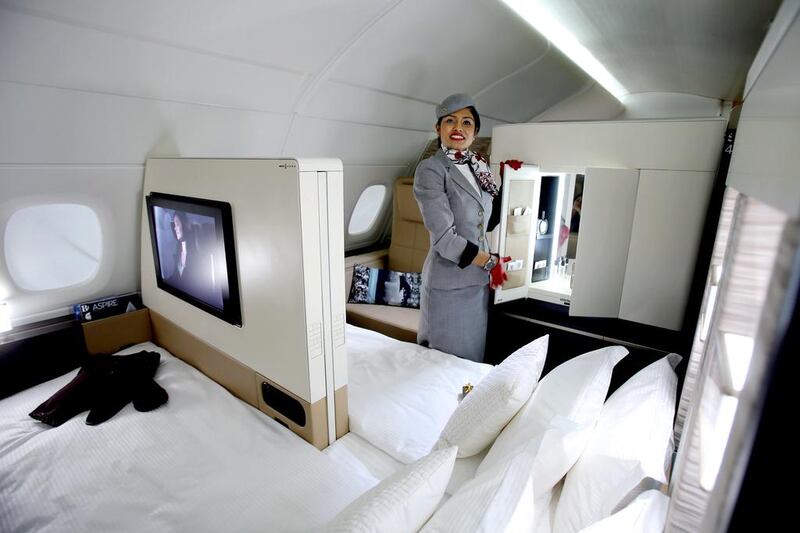According to data from the Centre for Aviation (Capa), long-haul first class air travel is in decline.
That is despite a growing battle between Arabian Gulf carriers to innovate new concepts in luxury air travel, introducing flying bedrooms similar to those found in a yacht or a hotel.
Only weeks after Etihad Airways announced its premium travel experience – which features private suites, apartments and business studios on its aircraft – Emirates Airline last week said it would match that by introducing a "bedroom concept".
However, Capa points out in data released on its website last week that while London Heathrow to New York JFK is still the world’s most popular long-haul first class route with 1,116 weekly first class seats and an average of 159 seats a day between May 12 and 18, the removal of first class cabins from American Airlines’ 777-200s fleet means that these numbers are down “considerably”.
“American in May 2012 offered 560 first class seats across 35 weekly New York JFK-London Heathrow flights while in May 2014 offers 168 across 21 weekly flights,” Capa said.
Iata data last week showed that premium traffic volumes have declined in recent months as China demand fell, with only the Middle East performing solidly. Growth in premium travel slowed in March, up 1.9 per cent year on year compared to 4.1 per cent in February.
“The Gulf in particular is enjoying an acceleration in economic growth and tourism … it shows once again that this region is one of the strongest aviation markets in the world,” said Hussein Dabbas, the International Air Transport Association’s regional vice president for Africa-Middle East.
However, airlines around the world are reviewing their premium offerings, with only a handful able to sustain a first class cabin.
Airlines continue to “cannibalise their first class with business class seats that become lie flat”, Capa said.
At the same time the pool of first class passengers is shrinking.
Germany's Lufthansa is soon expected to cut first class from many of its long-haul aircraft. Qatar Airways has already indicated its focus away from first class and Tam is the latest airline to remove first class.
However, Emirates' tie-up with Qantas has helped to shift demand towards Dubai, with the Heathrow to Dubai route the second busiest first class route in the period with 850 seats weekly and 121 on average daily, Capa data showed.
Overall Dubai is home to more long-haul first class routes than Heathrow, and Emirates flies more long-haul first class seats than British Airways or Lufthansa, Capa said.
“The shift in the world’s top first class routes and number of seats is a story of changing partners and alliances, with Qantas boosting Dubai but detracting from Singapore. This helps accentuate the continued focus of the two major UAE airlines in the premium cabins, retaining their focus on first class travellers,” said Capa.
business@thenational.ae
Follow us on Twitter @Ind_Insights





